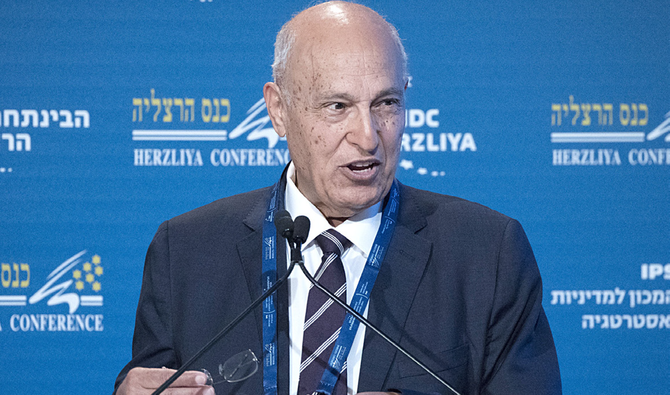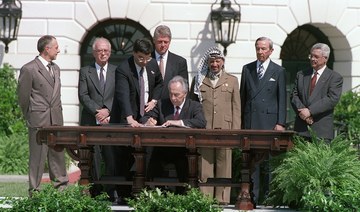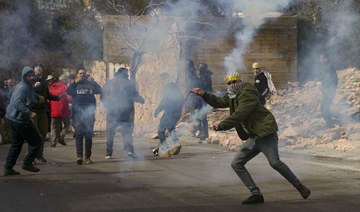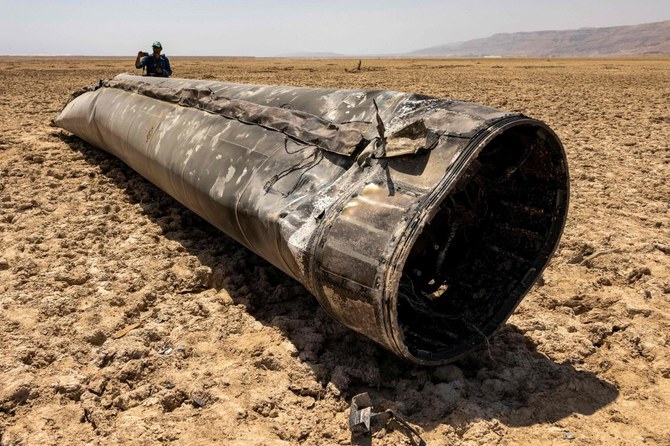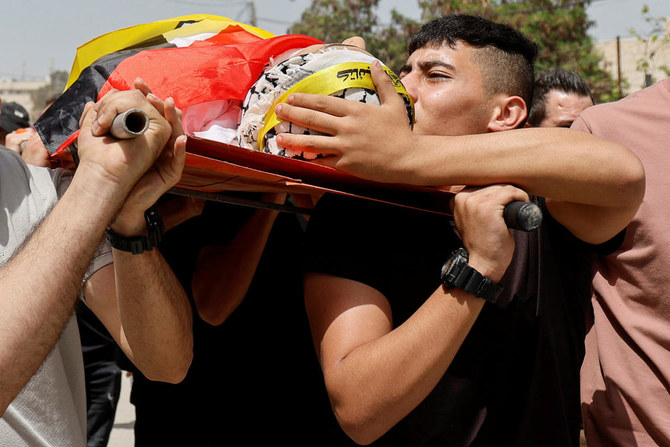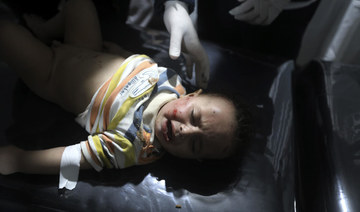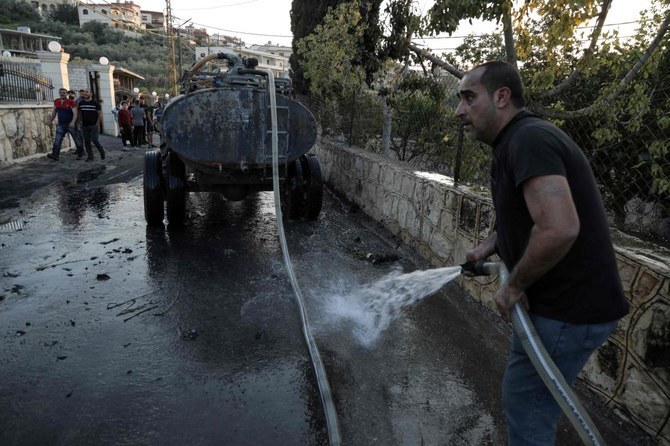GAZA CITY: Palestinian opinion was divided in 1993 with the signing of the Oslo Accord, which was aimed at ending the conflict with Israel.
It was signed by the Palestine Liberation Organization and Israel, under US auspices, on Sept. 13. Supporters of the agreement saw it as a gateway to establishing Palestinian statehood and ending the occupation, while those opposing it saw it as a free concession.
This division remains almost three decades after the landmark moment, but is more intense than ever as the Palestinians have yet to achieve their dream of an independent state and the occupation is intact.
The accord’s supporters maintain a peaceful approach to obtaining their rights, even though they are harshly criticised by those who have not proved that their stance is the better one.
The political advisor to President Mahmoud Abbas, Nabil Shaath, has been one of the leading Palestinian negotiators for many years.
He affirmed the Palestinian leadership’s adherence to peace as a way to establish an independent state with East Jerusalem as its capital.
Many achievements had been made, according to Shaath. “We returned with hundreds of thousands of Palestinians from the diaspora to Palestine, and we established institutions and a state economy, even if we are still under occupation,” he told Arab News.
Shaath understood those who criticized the peace option, due to the long years of negotiations, but said that the defect lay with successive Israeli governments that had worked to destroy the Oslo agreement. The most extreme, aggressive and hostile administration to peace was the current one headed by Prime Minister Benjamin Netanyahu, he added.
The accord included a declaration of principles on arrangements for a Palestinian self-transitional government. The aim of the negotiations at the time was to form an autonomous transitional Palestinian authority in the West Bank and Gaza Strip for a period not exceeding five years, after which it would lead to a final settlement.
Oslo guaranteed the return of hundreds of thousands of Palestinians from the diaspora, and the building of state institutions, but it did not lead to the establishment of an independent state that was supposed to be announced in 1999.
The Al-Aqsa Intifada broke out a few months later and the situation ended with internal Palestinian rifts.
Hamas, which opposed Oslo from the first disclosure of the negotiations that led to it and refused to participate in the first legislative elections that took place in 1996, still opposes the agreement despite participating in the second legislative elections that took place in 2006 and forming the government at the time.
The conflict over the Oslo gains became a gateway to the internal division that the Palestinians suffer from to this day. But Hamas does not see a contradiction between its political participation and its continued opposition to a political settlement with Israel.
The spokesman for Hamas in Gaza, Hazem Qasem, told Arab News that the Oslo agreement had inserted “our cause and our people into a labyrinth of political absurdity, and dragged on it the scourge of annexes of agreements from which our people only reaped more handcuffs and concessions.”
Qasem said the agreement was responsible for the continuous retreat of the Palestinian cause in exchange for the expansion of the “Zionist project” through settlement expansion and “shackling” Palestinians with security and economic agreements.
He added that Hamas had demonstrated the correctness of its position in rejecting the peace option, and that only resistance was capable of extracting rights for Palestinians.
Hamas, with its participation in legislative elections, had succeeded in providing an umbrella and protection for the “resistance in Gaza.”
The leader of Islamic Jihad, Ahmed Al-Mudallal, said that Oslo was the beginning of the “deviation and division” that the Palestinian people were enduring.
“To those who have made us believe that we are moving from occupation to independence: Here we are moving toward more occupation, displacement, killing, arrest, Judaization, settlement, starvation and siege,” Al-Mudallal told Arab News.
Political science professor Ibrahim Abrash believed that everything on the ground said the Oslo Accord was over. Israel had played a key role in drafting the terms of the agreement and, on the ground, it practiced “everything that contradicted” the political settlement process and the principle of land for peace.
“All Palestinians have reached a dead end, whether Hamas or Fatah,” he told Arab News. “We need a renewal of political life and, without that, the dream of liberation and the state will not see the light.”



